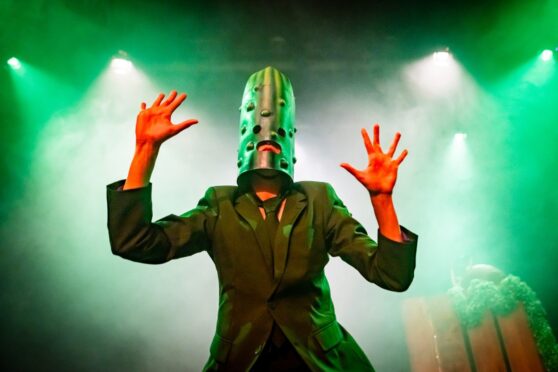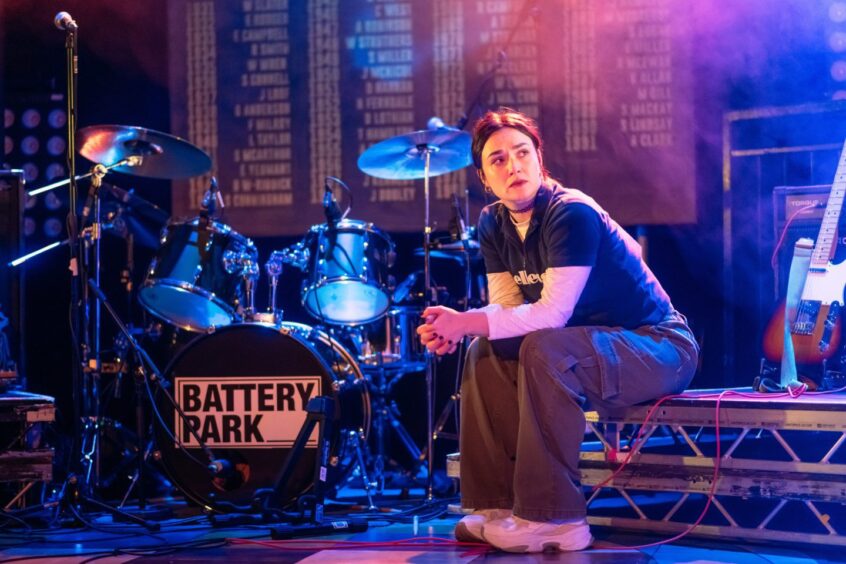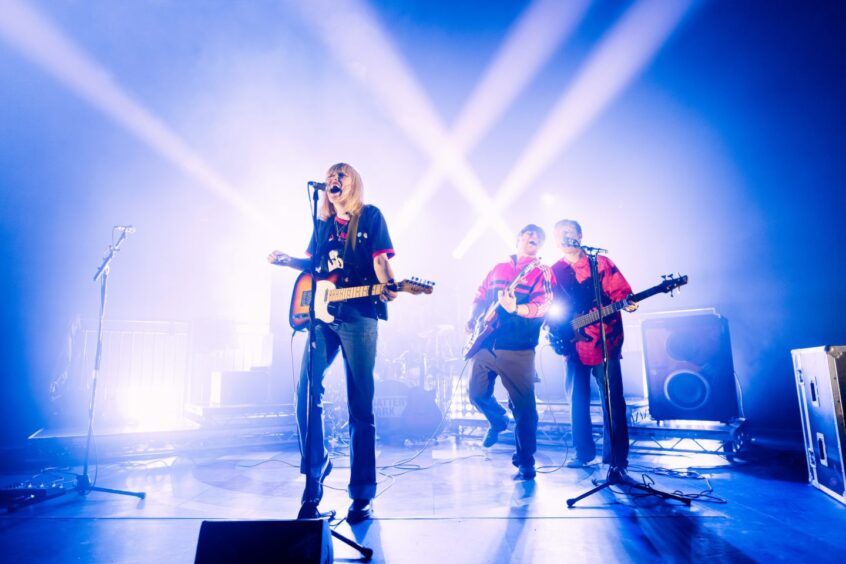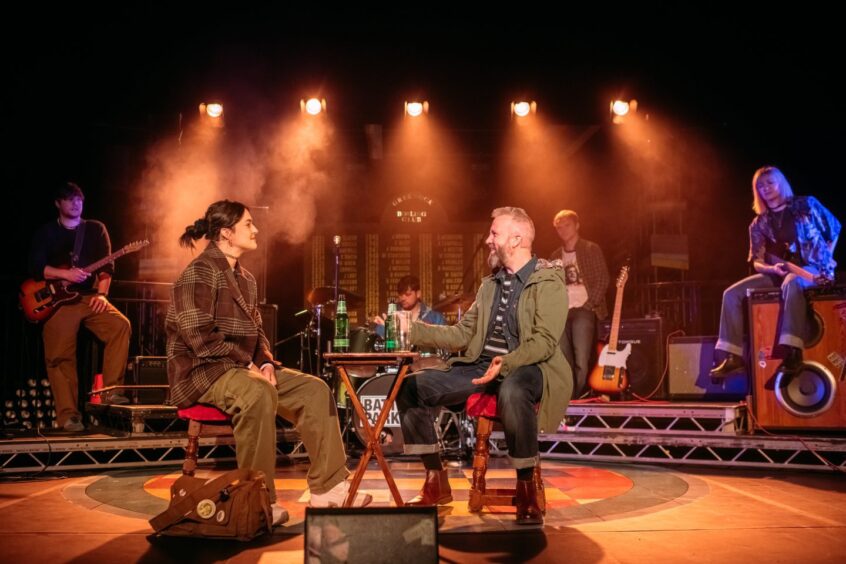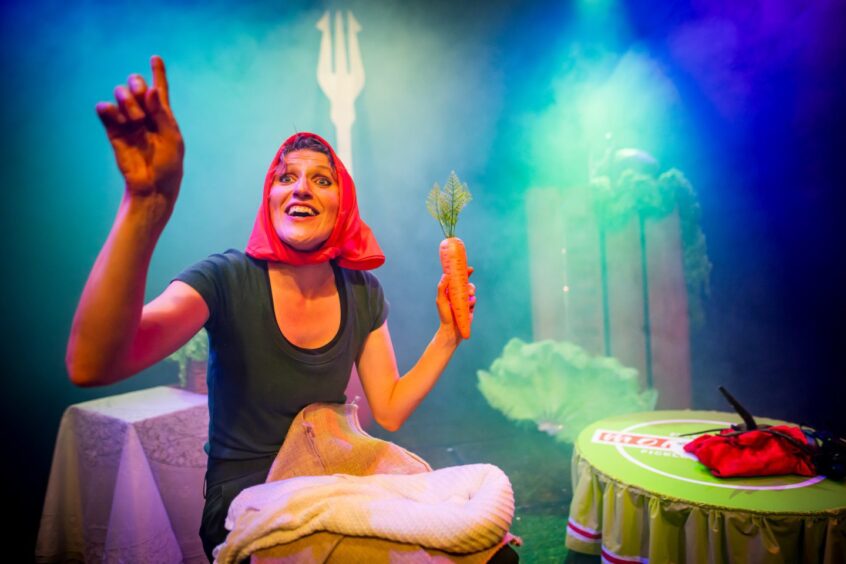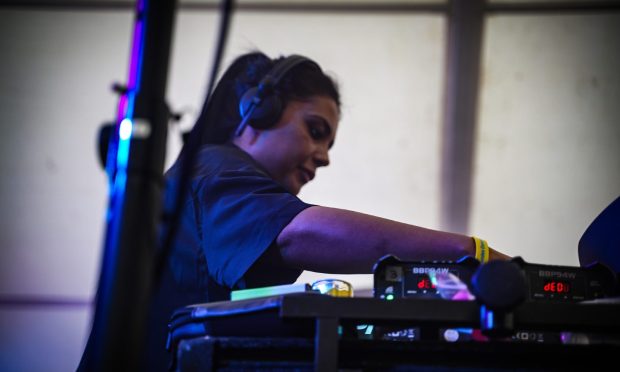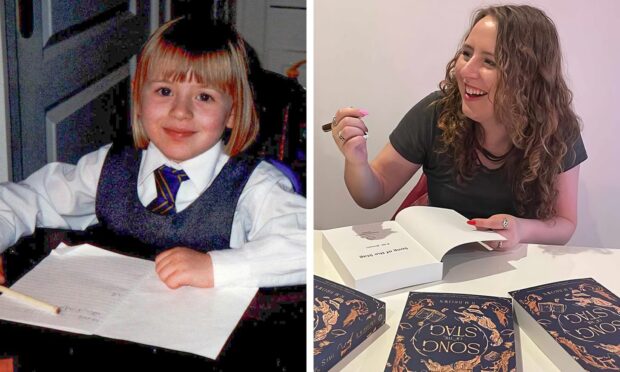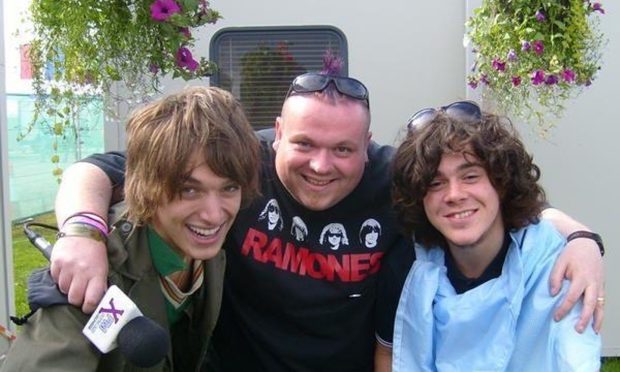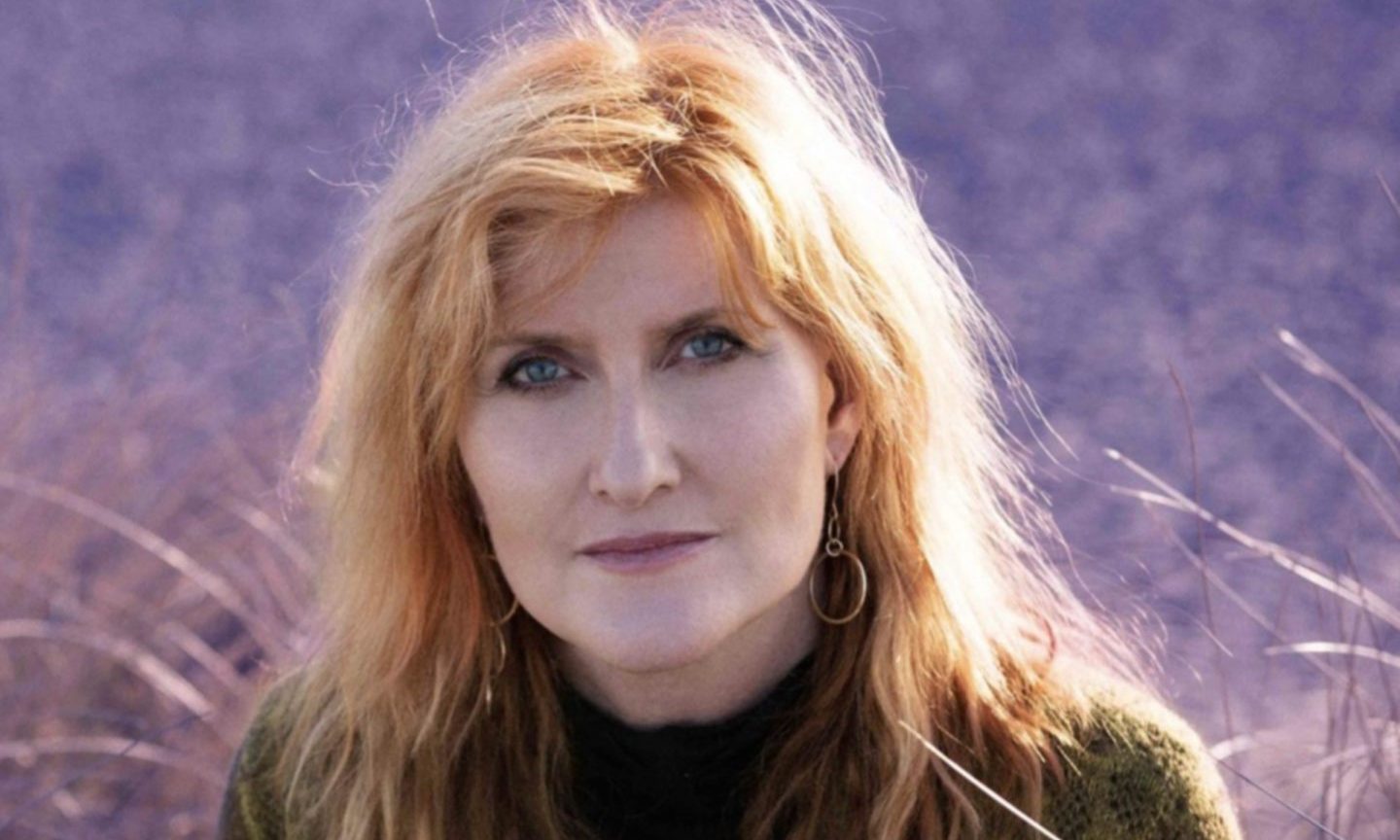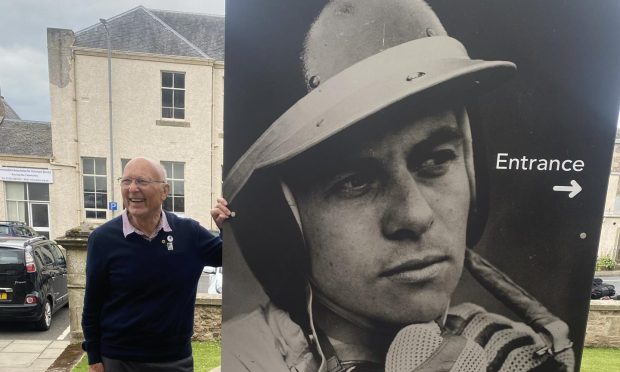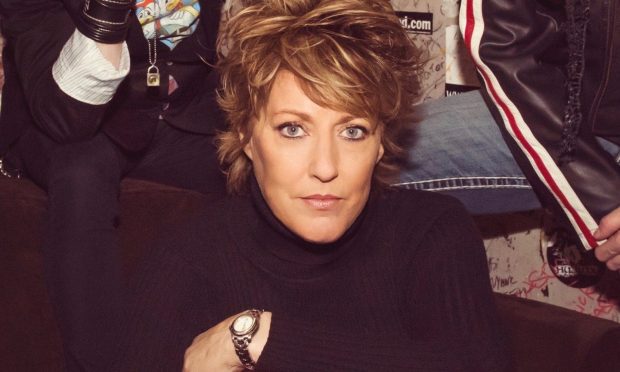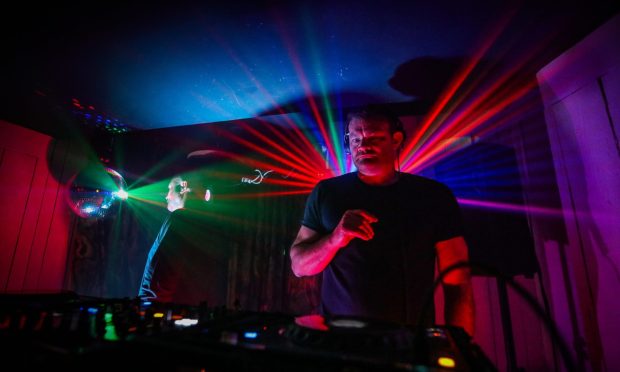Two new theatre shows which are touring Scotland at the moment – and are in the area this week – couldn’t sound more different.
One, Battery Park, is a Britpop musical about a Scottish indie band which never made it big in the 1990s.
The other, inspired by David Lynch and the great absurdist playwright Eugene Ionesco, is about a bunch of doomed pickled vegetables in a jar that’s about to go off.
Yet both examine what happens when a person (or a pickled gherkin) doesn’t feel they’ve lived up to their potential in life.
“I’ve found that people who aren’t really into the music can relate to the story,” says playwright and director Andy McGregor of his musical, Battery Park.
“It’s that thing of, doing things when you were young then thinking back to, ‘if only I had done that’, ‘I can’t believe I broke up with her then’, all that sort of thing.
“People have been really responding to it, because it makes them think back on their own lives, but young people have been loving it as well.
“It’s exciting, watching young people on stage. Even though it’s set in the ‘90s, they’re 19 and 20 year olds getting excited about their future. The music is loud, the lighting is great, it’s a real experience. It’s appealed right across the board, which has been rewarding.”
Greenock, not New York
Named after the park in Greenock, not the one in New York, Battery Park are the fictional group McGregor has created for the piece, who get together in 1994 but miss out on stardom.
Or rather, working class brothers Tommy and Ed (Stuart Edgar and Tommy McGowan), who work at the local IBM plant, don’t make it, while their singer Robyn (Kim Allan), becomes a superstar.
“She has stage presence, but she’s from a more affluent background, from private school,” says McGregor.
“In 1994 there was something exciting, these two brothers believe they can make it because the Gallagher brothers made it. People from these small, working class towns and cities were making it big, but now you have to be from money to survive in a band. Even the dole was set up differently then, you got extra money if you were in a band, working class people could get a foot in.”
The play isn’t based on McGregor’s own experience, but it reflects it. From his late teens in 1997 and through his twenties, he was the frontman of Largs-formed band Blind Pew.
They got some choice tours and support slots for bands like Idlewild and Reverend and the Makers, before “a rotten record deal took the wind out of our sails. When that finished, I spent a few years doing odd jobs, working in youth theatre and teaching recording.”
When McGregor was 30 he studied theatre at the Royal Conservatoire of Scotland, which is exactly the same route taken at the same age by Edgar, who also used to be in a band.
‘They could go into King Tut’s tomorrow’
McGregor’s also written six new songs – with lyrics co-written by Isla Cowan – for a play which he describes as a family drama and a romance, alongside the elements about class and the music industry.
“When we started rehearsing, we didn’t go to a normal theatre rehearsal room, we went to a band practice room,” says McGregor.
“You don’t want to be watching a group of actors pretending to be a band, and that’s not what it feels like. They could go into King Tut’s and play a gig tomorrow, and no one would think twice.”
On the other hand, theatremaker and performance artist Ruxy Cantir’s Pickled Republic – which is directed by Fife-based creative powerhouse Shona Reppe – is something entirely different.
“It’s set in a pickling jar, where all the characters are vegetables that are going off as it’s expiring,” says Cantir.
“Each comes forward and does an act, cabaret-style, right before their demise, the last hurrah before the jar goes off. They’re all coming to terms with their own existence, with their own search for purpose, whether it was fulfilled or not, against the backdrop of impending doom in this rotting jar.”
Fall of Soviet Union gave playwright a taste for the absurd
The emphasis here is on dark, absurd humour, and any fans of Cantir’s two key influences Lynch and Ionesco will know exactly what she’s trying to get at with what she calls an “outrageous, physical, sinister” piece.
“I’m originally from Moldova in Eastern Europe, and growing up there, especially after the fall of the Soviet Union, offered me an insight,” she says.
“Basically, we were living against the backdrop of absurdity all the time, it was such a paradoxical time to live through. That’s the way I understand the world now, and why Theatre of the Absurd really speaks to me.”
One story her uncle told her a few years ago about what happened at a funeral inspired the way she thinks about the Pickled Republic.
“In Moldova we still have funeral criers, or ‘keeners’ as we call them,” she says.
“A woman we knew from my grandmother’s village was employed to be a crier at a funeral, and she climbed into a coffin and wanted her picture taken in it, because she wanted to know what she would look like when she died.
“Obviously that’s not great, it’s horrific and inappropriate – but for my money, also quite hilarious in its own way. I’m interested in the blurry line between the inappropriate, the tragic and the comic, which I think reflects the nature of our existence.”
Battery Park is at Perth Theatre, Friday 13th October; Byre Theatre, St Andrews, Saturday 14th October.
Pickled Republic is at Perth Theatre, Wednesday 18th October.
